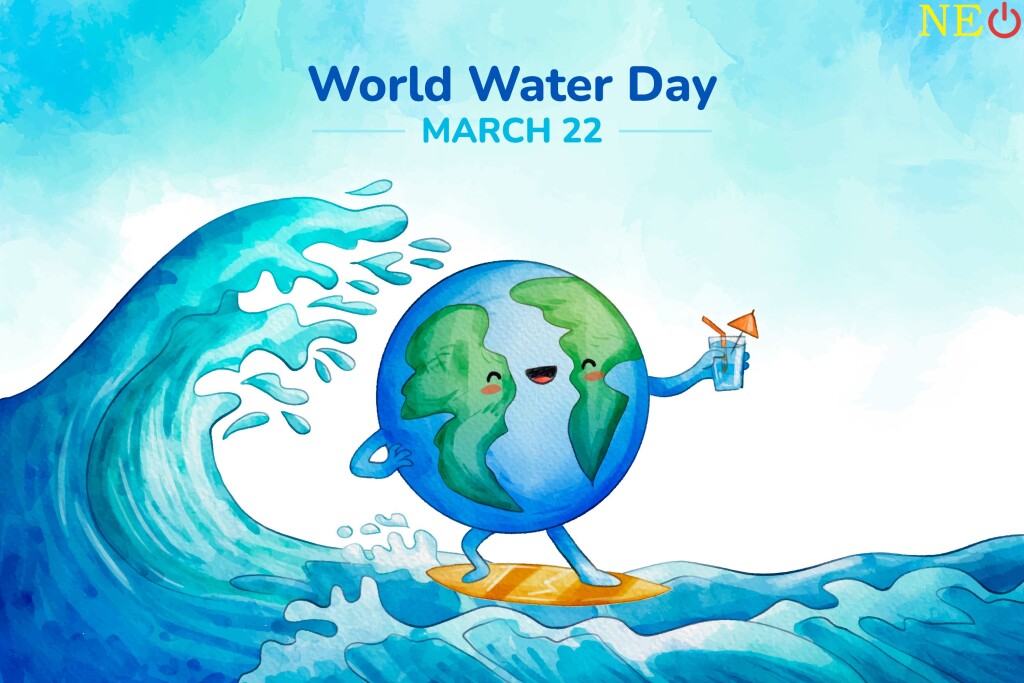World Water Day, observed annually on March 22nd, serves as a poignant reminder of the critical importance of freshwater resources worldwide. This significance is particularly pronounced in regions grappling with acute water shortages, such as Bengaluru, India's bustling IT hub, where the water crisis looms large due to failed monsoons and depleting groundwater reserves.
Table of contents [Show]
History of World Water Day
The inception of World Water Day traces back to the United Nations Conference on Environment and Development held in Rio de Janeiro in 1992. It was during this conference that the first formal proposal for World Water Day emerged under Agenda 21. Subsequently, in December 1992, the United Nations General Assembly adopted a resolution designating March 22nd as World Water Day, marking it as a global observance to raise awareness about the importance of freshwater resources and promote sustainable management practices.
Significance of World Water Day
The observance of World Water Day by the United Nations aims to highlight the crucial need for sustainable management of freshwater resources worldwide. Each year, on this day, the United Nations releases its flagship report on water and sanitation, shedding light on key issues and challenges faced in this realm.
Theme
This year's theme is 'Water for prosperity and peace'. Thus, the 2024 edition of the United Nations' flagship World Water Development Report (WWDR) will delve into this topic and will be released today. The theme changes each year, but the major focus remains on topics related to clean water, sanitation, and hygiene (WASH), which aligns with the aims of Sustainable Development Goal 6.
- Water as a Source of Peace and Conflict: The UN underscores the dual nature of water – it can either foster peace or exacerbate conflict. Scarce or polluted water sources often spark tensions among communities, while access disputes further escalate tensions. Addressing water-related challenges necessitates collective action and cooperation to ensure equitable distribution and access for all.
- Water's Role in Prosperity and Peace: Against the backdrop of mass migration and geopolitical upheavals, water cooperation emerges as a critical component of climate change adaptation and mitigation strategies. Collaborative efforts among nations are imperative to address water-related challenges effectively and promote sustainable development.
- Water as a Solution to Crisis: The UN emphasizes the transformative potential of water in resolving crises. By prioritizing equitable and sustainable water management practices, communities and nations can foster harmony and resilience in the face of water scarcity and environmental degradation. International cooperation, guided by United Nations treaties, coupled with grassroots initiatives, holds the key to addressing the water crisis comprehensively.
Addressing the Water Crisis in Bengaluru
The water crisis gripping Bengaluru serves as a stark reminder of the urgent need for effective water management strategies at both local and global levels. Rapid urbanization, coupled with unsustainable water consumption practices, has strained the city's water resources, leading to chronic shortages and environmental degradation.
To mitigate the water crisis in Bengaluru and similar urban centers, concerted efforts are required to:
- Promote Water Conservation: Encourage adoption of water-saving technologies and practices, such as rainwater harvesting and efficient irrigation methods, to reduce water wastage and enhance water resilience.
- Invest in Infrastructure: Develop robust water infrastructure, including sewage treatment plants and distribution networks, to ensure reliable access to clean water for all residents.
- Enhance Governance: Strengthen regulatory frameworks and enforcement mechanisms to curb water pollution and unauthorized extraction of groundwater, promoting sustainable water management practices.
- Raise Awareness: Foster public awareness campaigns to educate citizens about the importance of water conservation and the need for collective action to safeguard precious water resources.
By prioritizing sustainable water management practices and fostering collaboration among stakeholders, Bengaluru and other urban centers can navigate the challenges posed by the water crisis and pave the way for a more water-secure future.
As we commemorate World Water Day, let us reaffirm our commitment to protecting and preserving freshwater resources for present and future generations. By heeding the lessons from the UN's message and taking concrete actions to address water-related challenges, we can build a more resilient and sustainable world where access to clean water is a fundamental human right. Let us work together to ensure that every drop counts in our collective efforts to safeguard the planet's most precious resource – water.









